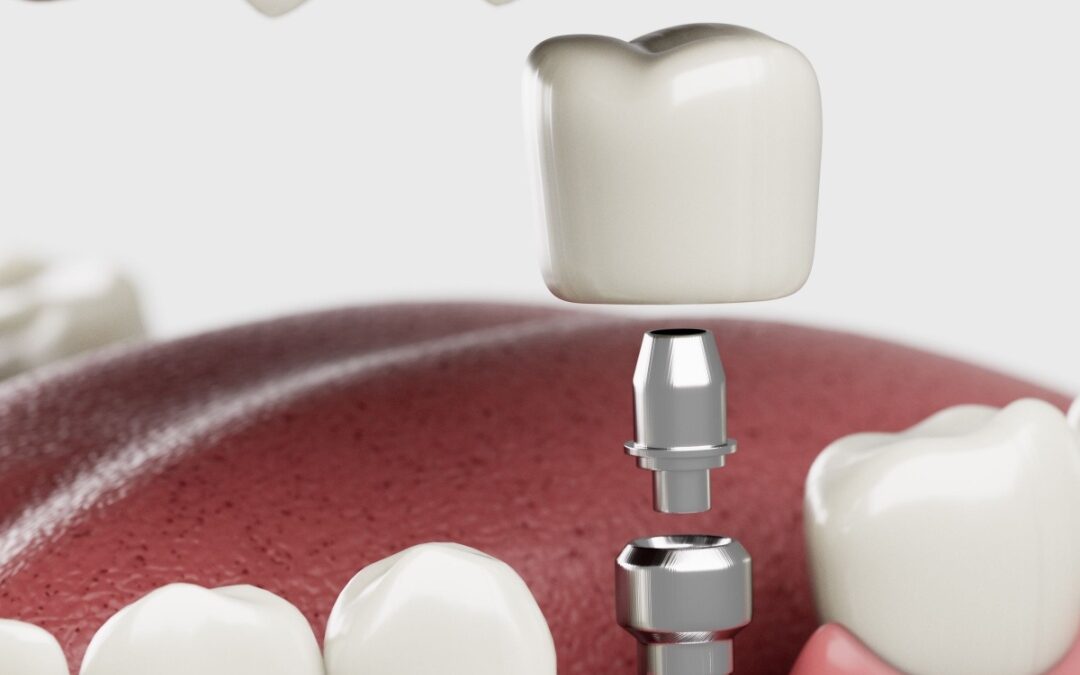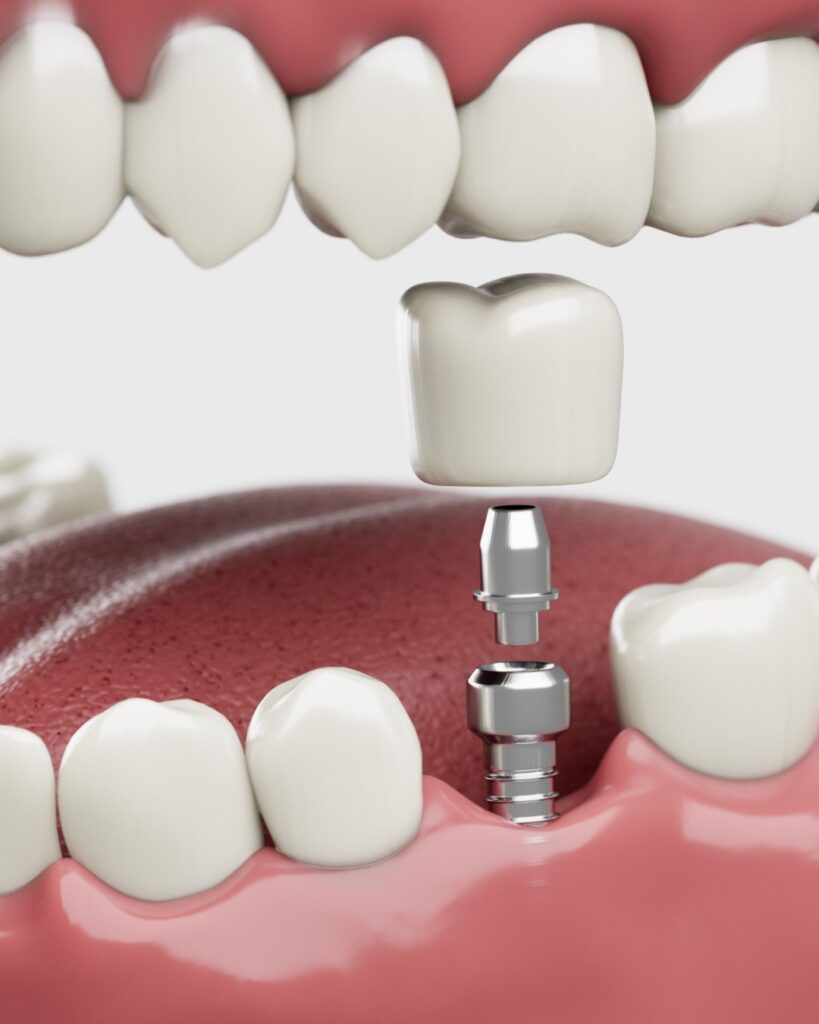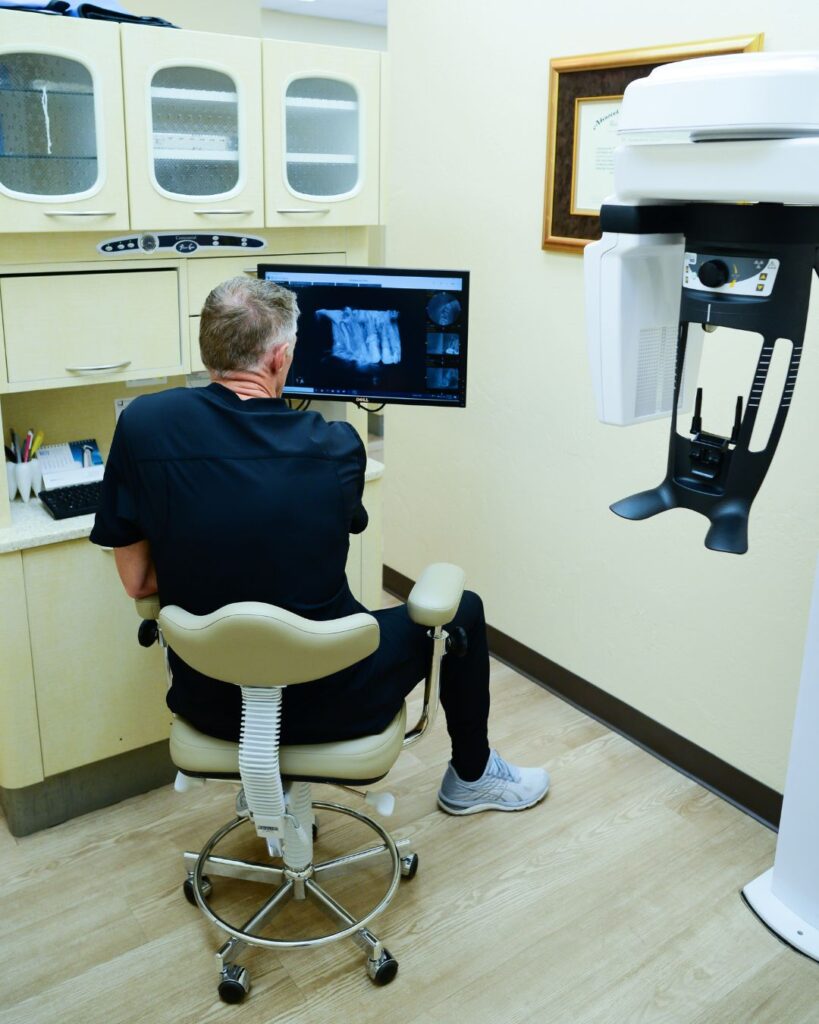
by Dr. Jacqueline S. Allen | Jul 7, 2025 | Blog, Endodontist, GentalWave, Root Canal
Most people are familiar with general dentists, but when a dental issue goes deeper—literally—your dentist might refer you to a specialist called an endodontist. But what exactly does an endodontist do? If you’re experiencing tooth pain, sensitivity, or have been told you need a root canal, understanding the role of an endodontist can help you feel more informed and confident in your care.
What Is an Endodontist?
An endodontist is a dental specialist who focuses on diagnosing and treating problems related to the dental pulp and the tissues surrounding the roots of a tooth.  After completing dental school, endodontists undergo two or more additional years of advanced training specifically in root canal therapy, complex tooth anatomy, and pain management. While all endodontists are dentists, not all dentists are endodontists. General dentists handle routine care like cleanings, fillings, and crowns, while endodontists are experts in saving natural teeth through specialized procedures.
After completing dental school, endodontists undergo two or more additional years of advanced training specifically in root canal therapy, complex tooth anatomy, and pain management. While all endodontists are dentists, not all dentists are endodontists. General dentists handle routine care like cleanings, fillings, and crowns, while endodontists are experts in saving natural teeth through specialized procedures.
What Procedures Do Endodontists Perform?
The most common procedure endodontists perform is root canal therapy. However, their expertise extends beyond that. Here’s a breakdown of services typically offered:
- Root Canal Therapy
This treatment is done to remove infected or inflamed pulp tissue inside a tooth. An endodontist carefully cleans and disinfects the inner canals of the tooth, then fills and seals them to prevent further infection.
- Root Canal Retreatment
If a tooth that has already had a root canal becomes painful or infected again, endodontists can retreat the tooth to give it a second chance.
- Apicoectomy (Root-End Surgery)
Sometimes, inflammation or infection persists even after a root canal. In these cases, endodontists may perform an apicoectomy, which involves removing the tip of the root and sealing it to stop the issue at its source.
- Traumatic Dental Injury Treatment
Endodontists also treat teeth that have been cracked, chipped, or knocked out due to accidents or sports injuries. Their training enables them to preserve teeth that may otherwise be lost.
- GentleWave® Procedure
At Phoenix Endodontic Group, we’re proud to offer the GentleWave® procedure as a modern, minimally invasive alternative to traditional root canal treatment. This advanced technology uses a combination of sound waves and fluid dynamics to deeply clean and disinfect even the most complex root canal systems. Unlike traditional root canal methods that rely on manual files to remove infected tissue, the GentleWave® system reaches microscopic spaces and removes bacteria, debris, and infected tissue more thoroughly. The benefits of the GentleWave® procedure are impressive. It is less invasive, preserving more of your natural tooth structure. Patients typically experience less post-operative discomfort, and because the system provides a more complete cleaning, it often reduces the need for multiple visits. Many treatments can be completed in just one appointment. Additionally, GentleWave® minimizes the risk of reinfection by removing bacteria from hard-to-reach areas that traditional methods might miss. By offering the GentleWave® procedure, Phoenix Endodontic Group ensures our patients receive state-of-the-art care with faster recovery times, enhanced comfort, and highly successful outcomes — making root canal treatment safer, easier, and more effective than ever before.
 When Should You See an Endodontist?
When Should You See an Endodontist?
Your general dentist might refer you to an endodontist for several reasons: you have severe tooth pain or prolonged sensitivity to hot or cold, you’ve experienced dental trauma, you need a root canal or root canal retreatment, your tooth has complex anatomy that requires specialized care, or you want to explore advanced treatment options like GentleWave®. Seeing an endodontist can help you save your natural teeth whenever possible, which is always the best option for your long-term oral health.
Benefits of Seeing an Endodontist
Choosing to see an endodontist comes with many advantages. With focused training, endodontists are highly skilled in diagnosing and treating tooth pain and root issues. Many use cutting-edge tools like digital imaging, microsurgical techniques, and advanced technology like GentleWave® to improve accuracy and comfort. Endodontists can often complete complex procedures in fewer visits than a general dentist. Their precision and training often lead to higher success rates, especially for difficult cases.
Trust Your Smile to a Root Canal Specialist
At Phoenix Endodontic Group, our board-certified endodontists specialize in saving teeth with expert care, precision, and compassion. Whether you’ve been referred by your dentist or are exploring options for persistent tooth pain, we’re here to help. Contact us today to schedule a consultation and take the next step toward restoring your oral health and comfort.

by Dr. Jacqueline S. Allen | Jun 3, 2025 | Dental Implants
 In today’s era of information overload, there’s nothing wrong with focusing on the basics. Trustworthy medical and dental websites often publish pages or posts addressing frequently asked questions or offering a “101” level review of an important topic.
In today’s era of information overload, there’s nothing wrong with focusing on the basics. Trustworthy medical and dental websites often publish pages or posts addressing frequently asked questions or offering a “101” level review of an important topic.
Likewise, here are five facts about dental implants to give you a baseline of understanding, so you can discuss dental implants with your dental professional.
5 Important Facts About Dental Implants
- Dental implants can stop bone loss in your jaw. When teeth are lost due to injury or decay, you lose bone density in your jaw. Implants can prevent this loss and help restore your jaw’s structure by reducing the load on the remaining natural teeth.
- Dental implants can replace one – or all – of your teeth. While the methods vary, implants can be used to replace one, a few, an entire arch, or even all your teeth. Dental implants place biocompatible metal posts where the tooth roots have been, adding an artificial tooth restoration above the gum line.
- Dental implants need time to osseointegrate into your jaw. Some patients can get “teeth in a day” dental implants; others require multiple visits to supplement the jaw with bone grafts and other steps to ensure success. It’s important to understand the posts placed below the gum line will need time to bind with the bone in your jaw to function at their maximum effectiveness. This process, known as osseointegration, can take several months.
- Dental implants require a post-procedure recovery plan. Immediately after your dental implants are placed, you will need a recovery period. You’ll need to eat a soft-food diet and monitor your mouth carefully for signs of infection at the implantation site. The initial healing can take one or two weeks. Osseointegration, as mentioned above, can take six to eight weeks.
- Dental implants can create dramatic improvements in how you speak, eat, and smile. Dental implants are popular because they reverse the negative legacy of natural tooth loss. Many patients report being able to eat all the foods they used to love, speak with greater clarity and diction and – best of all! – feel comfortable smiling and laughing in ways that show off their smiles.
If you have lost one or more teeth, you can schedule a visit with your endodontist or other dental professional to assess your current oral health and develop a treatment plan based on your individual needs.
Call Our Office Today For Answers To Your Dental Implant Questions
Don’t let lack of knowledge about dental implants stand between you and better oral health. Call 602-242-4745 to make an appointment with the Phoenix Endodontic Group to discuss dental implants today.

by Dr. Jacqueline S. Allen | May 1, 2025 | Root Canal, Root Canal Aftercare
Following a root canal, success depends on more than what your doctor, dentist, or endodontist does – you play a critical role in recovery by paying close attention to your aftercare instructions.
aftercare instructions.
In this post, we’ll look at three important areas of root canal aftercare: pain management, post-procedure food choices, and daily oral care. Monitoring these areas after your root canal helps your body heal well and lays the groundwork for continuing good health.
Root Canal Aftercare Tips To Enhance Your Recovery
After your root canal, you’ll leave the office with any written recovery directions your practitioner has for you. Your next steps are easy: relax, wait for the local anesthesia to wear off before eating, and pay attention to how you feel.
- Pain Management – You may feel sensitivity in the treated tooth. This can be managed with over-the-counter pain relievers. If you feel severe pressure or pain in the tooth, call your endodontist promptly for a consultation.
- Post-Procedure Diet – Eat a soft-food diet for a short period after treatment to facilitate recovery. Recommended options include scrambled eggs, yogurt, mashed potatoes, lukewarm soups, meatloaf, pasta, and cooked or canned fruit. Avoid sticky foods, hard foods, and extremely hot or cold food and drink.
- Daily Oral Care – Your endodontist may direct you to swish with salt water for the first few days after your root canal. Beyond that, maintain your daily dental care routine, including flossing (be careful around the treated tooth), and twice-daily brushing.
Don’t Forget Your Crown!
A critical part of root canal aftercare involves returning to your general dentist to have a crown placed on the treated tooth. This protects your natural tooth from further damage and decay. You should have this done within a week or two of your root canal.
Call Our Office Today To Discuss Your Root Canal Aftercare Plan
The staff at the Phoenix Endodontic Group is happy to walk you through your root canal aftercare plan and answer any questions concerning your recovery. Call us at 602-242-4745 to make an appointment. We offer emergency treatment options during or outside regular office hours.

by Dr. Jacqueline S. Allen | Apr 4, 2025 | Root Canal
When a tooth gets injured or infected, you just want the pain to stop. Tooth extraction can sound like an alternative to a root canal, especially when only one tooth is involved. However, it’s important to look beyond the moment when a natural tooth is at risk.
involved. However, it’s important to look beyond the moment when a natural tooth is at risk.
Sometimes an extraction is the only choice because the tooth is cracked or injured, or because the decay is pervasive. Often, though, endodontists can repair a damaged natural tooth with root canal treatment. Let’s review a few reasons why saving a natural tooth through a root canal is better than having it extracted.
Root Canals Vs. Tooth Extractions: Which Is Best?
- Root canals protect your natural teeth from further damage. Root canal treatments thoroughly clean and disinfect the roots of your teeth. The final step also prevents infection from returning by filling the tooth canals with biocompatible material and placing a crown.
- Root canals keep your natural smile. Dentures, dental implants, or bridges – types of restorations used following tooth extraction – don’t function or look as well as your natural teeth. Endodontists can use root canals or related endodontic treatments to save even badly damaged natural teeth.
- Missing teeth result in cascading dental problems. One extracted tooth can cause your remaining teeth to shift. Multiple extracted teeth can result in bone loss in the jaw and a noticeable “sag” in the lower third of your face. Keeping your natural teeth prevents this.
- Root canals may actually be less painful! Despite what many people think, today’s root canal treatments are usually done under local or IV sedation anesthesia and have little or no pain afterwards. According to the American Association of Endodontists, patients who undergo root canals are six times more likely to describe the experience as painless than those who opt for tooth extraction.
Call Our Office For An Initial Consultation
At Phoenix Endodontic Group, our skilled staff can review your case to determine the best plan for preserving your natural teeth. Call us at 602-242-4745 to make an appointment. We offer emergency treatment options during or outside of regular office hours.

by Dr. Jacqueline S. Allen | Mar 10, 2025 | Dental Emergency, Dentistry, Endodontist
Like any medical emergency, dental emergencies require your quick response. If you have an injured tooth, it’s important that you see an endodontist immediately.
You should call 911 and head to an emergency room if an injured tooth has caused an abscess and you are having trouble breathing or swallowing, or if your jaw is broken. Otherwise, call your endodontist for an emergency appointment. At Phoenix Endodontic Group, we can provide emergency care 24/7, so call as soon as you need us, day or night.
Here is a quick guide to ways an endodontist might repair a tooth injury.

How Endodontists Treat Common Tooth Injuries
- If you come to your endodontist with a chipped or cracked tooth – they may recommend reattaching the tooth part with bonding material, placing a crown on the tooth to protect it from further damage, or performing a root canal if the crack in the tooth caused injury to its nerve.
- If you present with a dislodged or knocked-out tooth – they will want to know how recently the injury occurred. Teeth that have been knocked out of the mouth can sometimes be successfully placed back in the mouth if the patient sees an endodontist within 30 to 60 minutes of the incident. Avoid touching the root surface of the injured tooth and handle it carefully. For dislodged teeth, it may be possible for the endodontist to push the tooth back into place and stabilize it. Dislodged teeth sometimes also require root canal treatment.
- If you come in with a horizontal fracture – they will take images to determine the location of the fracture. A fracture near the tooth’s root may be able to be treated with a stabilizing splint, and possibly a root canal. A fracture across the root closer to the gum line is harder to treat and may result in the tooth having to be extracted.
Following many tooth injuries, your endodontist will recommend an annual check for root resorption, where your body rejects the injured tooth and dissolves the tooth root structure.
Don’t Delay – Call Our Office Immediately About Your Injured Tooth
Never delay treatment of an injured tooth. Call us at 602-242-4745 to make an appointment. Our practice offers emergency treatment options to ensure you can get the right treatment when you need it.

 After completing dental school, endodontists undergo two or more additional years of advanced training specifically in root canal therapy, complex tooth anatomy, and pain management. While all endodontists are dentists, not all dentists are endodontists. General dentists handle routine care like cleanings, fillings, and crowns, while endodontists are experts in saving natural teeth through specialized procedures.
After completing dental school, endodontists undergo two or more additional years of advanced training specifically in root canal therapy, complex tooth anatomy, and pain management. While all endodontists are dentists, not all dentists are endodontists. General dentists handle routine care like cleanings, fillings, and crowns, while endodontists are experts in saving natural teeth through specialized procedures. When Should You See an Endodontist?
When Should You See an Endodontist?

 In today’s era of information overload, there’s nothing wrong with focusing on the basics. Trustworthy medical and dental websites often publish pages or posts addressing frequently asked questions or offering a “101” level review of an important topic.
In today’s era of information overload, there’s nothing wrong with focusing on the basics. Trustworthy medical and dental websites often publish pages or posts addressing frequently asked questions or offering a “101” level review of an important topic.
 aftercare instructions.
aftercare instructions.
 involved. However, it’s important to look beyond the moment when a natural tooth is at risk.
involved. However, it’s important to look beyond the moment when a natural tooth is at risk.
